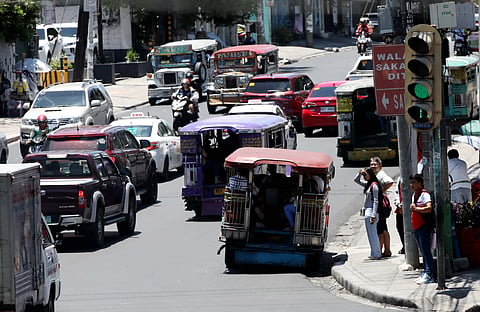
- NEWS
- the EDIT
- COMMENTARY
- BUSINESS
- LIFE
- SHOW
- ACTION
- GLOBAL GOALS
- SNAPS
- DYARYO TIRADA
- MORE

As millions of students return to school this June, the Land Transportation Franchising and Regulatory Board (LTFRB) on Tuesday issued a strong reminder to all public utility vehicle (PUV) operators and drivers, including tricycles and transport network vehicle service (TNVS) providers to strictly honor the 20 percent student fare discount.
LTFRB chairperson Atty. Teofilo Guadiz III said the directive is part of the Department of Transportation’s (DoTr) “Balik-Eskwela” (Back-to-School) enforcement campaign and supports the government’s aim to lower transportation costs for Filipino families.
Guadiz stressed that the 20 percent student discount is mandatory on all regular school days, including summer classes, for all land transport modes such as jeepneys, buses, UV Express vans, taxis and TNVS units.
The discount applies regardless of whether the fare is paid in cash or through digital platforms.
“We are reminding all drivers and operators that the 20 percent student fare discount is not optional. It is a right enshrined in law, and violations will be met with strict penalties,” Guadiz said.
The policy is based on Republic Act 11314, the Student Fare Discount Act, enacted in 2019.
Guadiz warned that first-time offenders could face fines up to P5,000, while repeated violations may lead to the suspension or revocation of franchises or permits, depending on the frequency and severity of the offense.
The LTFRB stressed that enforcing this policy is part of its responsibility to uphold the President’s directive to protect vulnerable sectors, particularly students who rely on public transport for their daily commute.
The student fare discount is available to currently enrolled students in basic education (elementary to senior high school), technical-vocational institutions and college or undergraduate university programs. Post-graduate students and those in short-term non-degree programs are not covered.
To avail of the discount, students must present a valid school ID or proof of current enrollment when boarding.
Guadiz urged the public to report any violations to LTFRB hotlines or through the LTFRB Citizen’s Complaint Center.
The agency said it is coordinating with local government units, schools, and transport cooperatives to ensure the directive is widely disseminated.
